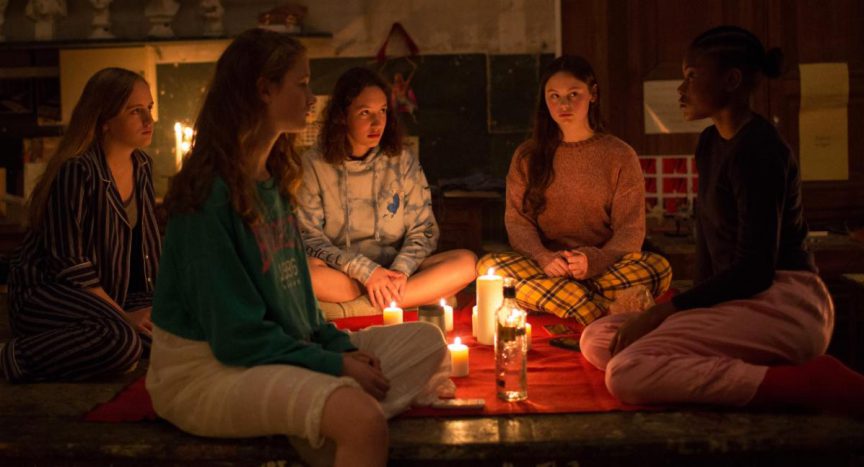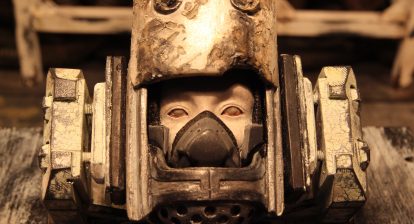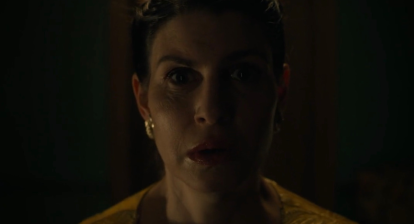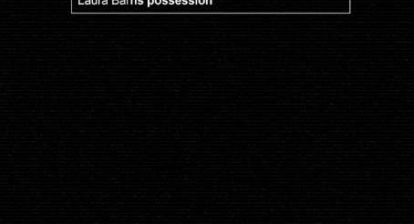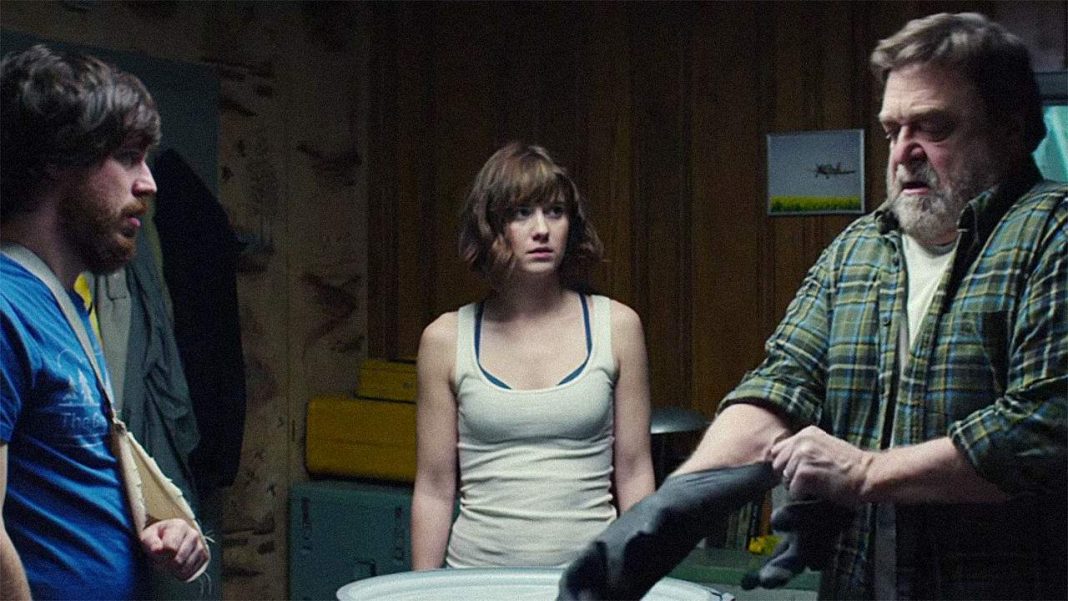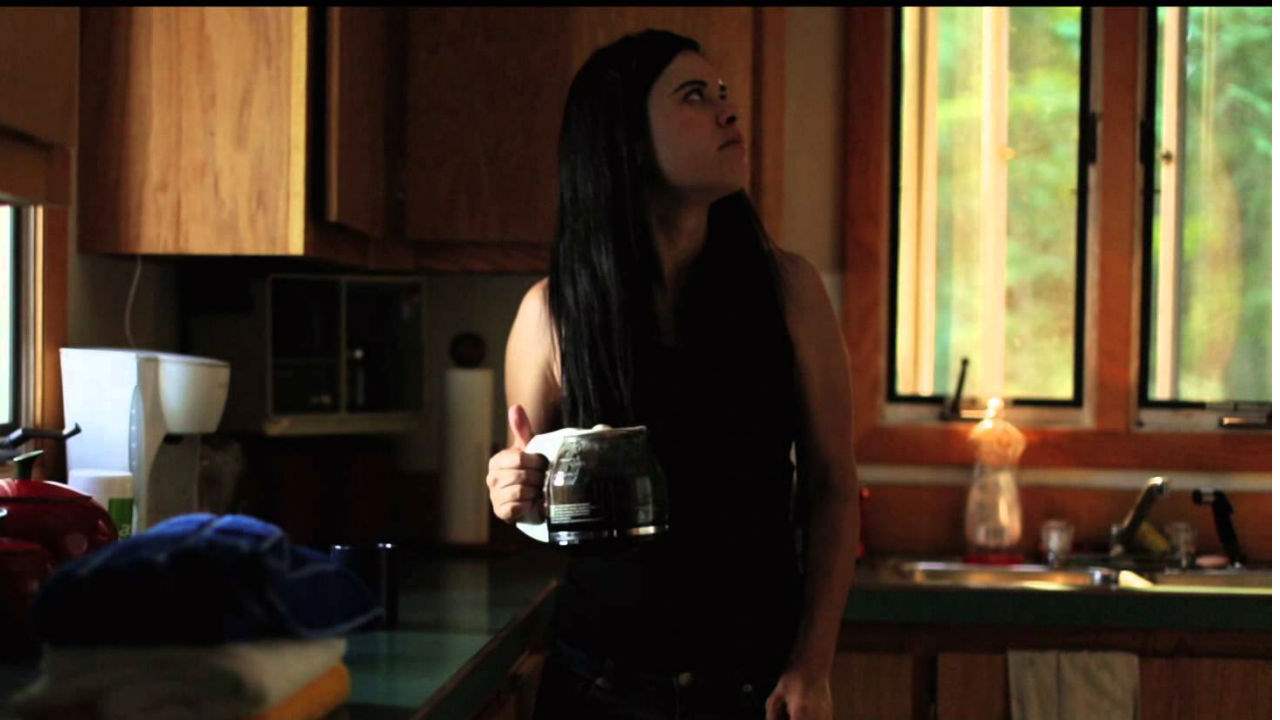It would not be particularly surprising to see Bertrand Bonello’s Zombi Child and Mati Diop’s recent Atlantics come to be known critically as something of sibling films. Both interpolate elements of genre cinema into otherwise relatively-grounded works of social realism, commenting on our contemporary culture without using supernatural elements as a purely allegorical component. Each film is strikingly torn between an indulgence in fantasy and an adherence to a stylistically conservative dramatic form, but Bonello lacks Diop’s visual lyricism, hypnotic pace and slow-burn introduction of narratively inexplicable genre interjections. Unlike Atlantics, a film which is beautifully streamlined, masterfully framed and rivetingly precise in its commentary, Bonello seems to search for a more purposefully jagged and uncomfortably unsettled shamble. Like the slow and erratically stumbling zombies that the film portrays, his film plays like a devious puppeteering act – interrupting, side-stepping, and sabotaging itself in intentionally dissonant motions.
The plot involves an inclusion of the real life story of Clairvius Narcisse, a Haitian man who was notoriously purported to have been possessed. Bonello’s film opens with the preparation and consumption of a pufferfish, more-or-less unexplained in the film but involving infamous theories of tetrodotoxin poisoning once used to justify the zombification phenomenon (a lot of this was put together by writer and academic Wade Davis, most well-known for authoring The Serpent and the Rainbow). This startling opening presents a blunt expression of the hypnotism of a zombie, unadorned by aesthetic flourishes of soundtrack or notably subjective camera movements. The one touch here — perhaps a misstep — is a stylistically designed moment of onscreen text declaring our setting as the Haiti of 1962, troublesome not for its conveyance of information but for the decidedly and distancing modern flair of the font and colour choice.
However, the majority of Zombi Child takes place in modern day France, as a history of colonization resurfaces in unexpected ways amid glimpses at the lives of teenage students at a prestigious all-girls academy. The film does a good job of portraying the students as organic characters, their taste in music and penchant for never letting their phones leave their hands not used as points of mockery but rather as details of their posture, mindset, and the cloistered world they inhabit. The eventual tying in of possession with the throes of adolescent heartbreak and hormonal lust makes narrative sense, but the most interesting aspects of the film – besides the wonderful central performances by young actors Louise Labeque and Wislanda Louimat – is the idea of zombification’s explicit, inextricable link to slavery, and slavery itself as something of a cultural zombie: this thing that will not die, marching on in malicious and unceasingly corruptive destruction.
Bonello’s film could be accused of operating with a leering outsider’s look of Haitian folklore and tradition, its characters of 1962 Haiti near-unspeaking symbols rather than the fully fleshed-out personalities of the young, contemporary (almost all white) teenagers. While the film culminates in a sequence of ritual that is actually appropriately disorienting, while remaining refreshingly grounded, it lacks all of the simple, yet profound, gutturally effective poise of Atlantics’s finale (a film that also had a more resonant emotional core to it, as well).
Zombi Child ultimately somewhat collapses in its final minutes, never finding a thesis quite strong enough to fully justify its own ambiguous characterization of and loose foothold upon the history of colonization and exploitation that it employs to tell its tale. The film’s most striking development in its final act is the young white protagonist’s naive hiring and misuse of supernatural energy for her own needs of independent satisfaction, self-actualization, and carnal desire. Zombi Child makes a strong case for the existence, and even prevalence, of this sort of blind wickedness and how it is inherent in colonization’s greed, but it does little to give voice to those who are most crucially robbed in the process.
WICKED RATING: 6/10
Director(s): Bertrand Bonello
Writer(s): Bertrand Bonello
Stars: Louise Labeque, Wislanda Louimat, Katiana Milfort, Mackenson Bijou, Adilé David
Release: January 24, 2020 (theatrical)
Studio/ Production Co:
Length: 103 minutes
Language: French, Haitian, English
